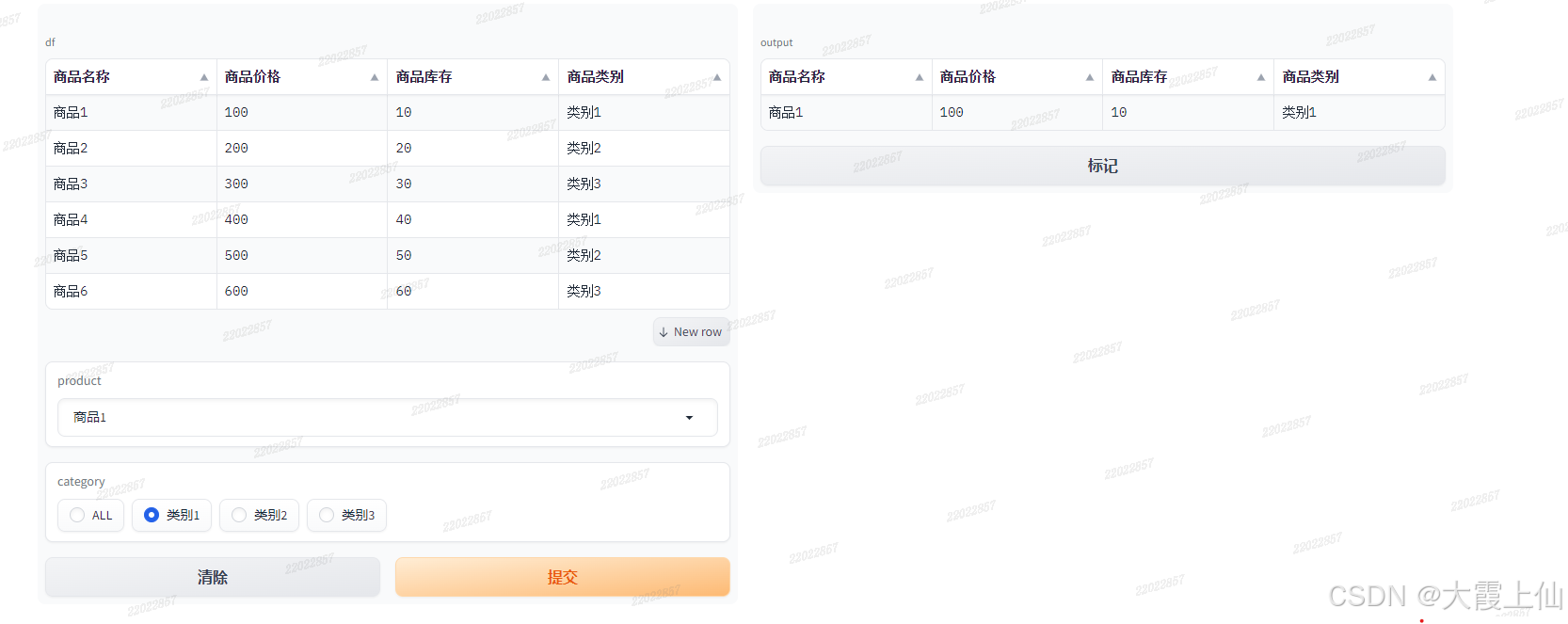1、file例子
import os
import gradio as gr
import tempfile
import shutil
def generate_file(file_obj):
global tmpdir
print('临时文件夹地址:{}'.format(tmpdir))
print('上传文件的地址:{}'.format(file_obj.name)) # 输出上传后的文件在gradio中保存的绝对地址
#获取到上传后的文件的绝对路径后,其余的操作就和平常一致了
# 将文件复制到临时目录中
shutil.copy(file_obj.name, tmpdir)
# 获取上传Gradio的文件名称
FileName=os.path.basename(file_obj.name)
# 获取拷贝在临时目录的新的文件地址
NewfilePath=os.path.join(tmpdir,FileName)
print(NewfilePath)
# 打开复制到新路径后的文件
with open(NewfilePath, 'rb') as file_obj:
#在本地电脑打开一个新的文件,并且将上传文件内容写入到新文件
outputPath=os.path.join(tmpdir,"New"+FileName)
with open(outputPath,'wb') as w:
w.write(file_obj.read())
# 返回新文件的的地址(注意这里)
return outputPath
def main():
global tmpdir
with tempfile.TemporaryDirectory(dir='.') as tmpdir:
# 定义输入和输出
inputs = gr.components.File(label="上传文件")
outputs = gr.components.File(label="下载文件")
# 创建 Gradio 应用程序g
app = gr.Interface(fn=generate_file, inputs=inputs, outputs=outputs, title="文件上传、并生成可下载文件demo",
description="上传任何文件都可以,只要大小别超过你电脑的内存即可"
)
# 启动应用程序
app.launch(share=True)
if __name__=="__main__":
main()
2、dataframe 列子
import gradio as gr
import pandas as pd
# 定义列名
column_names = ["商品名称", "商品价格", "商品库存", "商品类别"]
# 生成测试数据
data = [
["商品1", 100, 10, "类别1"],
["商品2", 200, 20, "类别2"],
["商品3", 300, 30, "类别3"],
["商品4", 400, 40, "类别1"],
["商品5", 500, 50, "类别2"],
["商品6", 600, 60, "类别3"],
]
# 创建Dataframe
df = pd.DataFrame(data, columns=column_names)
def filter_data(df, product, category):
# 对于没有特定过滤条件的情况,生成一个全为True的布尔序列
product_filter = (df['商品名称'] == product) if product is not None and product != "ALL" and len(
product) != 0 else pd.Series(
[True] * len(df))
category_filter = (df['商品类别'] == category) if category is not None and category != "ALL" and len(
category) != 0 else pd.Series([True] * len(df))
# 应用过滤条件
result = df[product_filter & category_filter]
return result
# 创建 Gradio 组件
demo = gr.Interface(
filter_data,
inputs=[gr.DataFrame(value=df, col_count=(4, 'fixed')), gr.Dropdown(choices=["ALL"] + sorted(df["商品名称"].unique())),
gr.Radio(choices=["ALL"] + sorted(df["商品类别"].unique()))],
outputs='dataframe'
)
# 显示界面
demo.launch()

